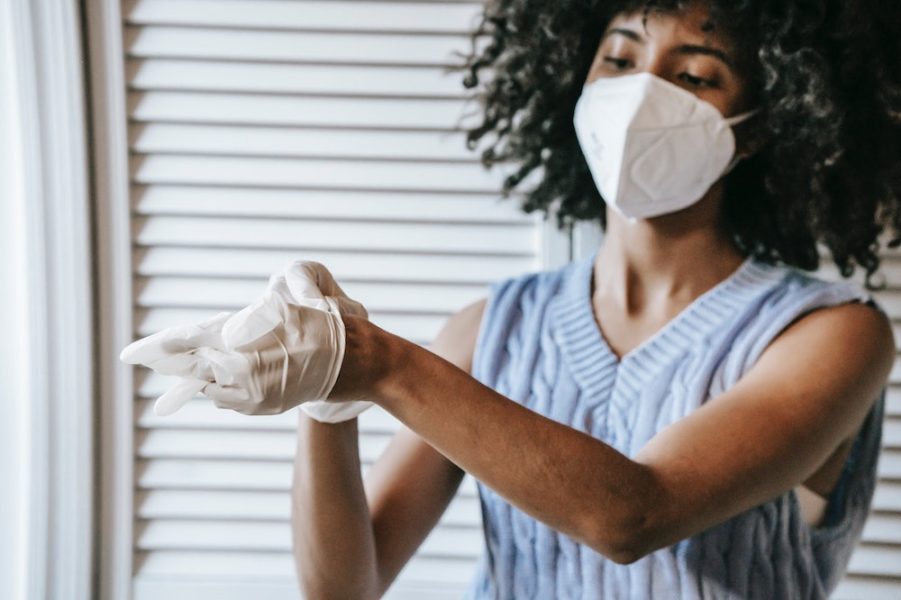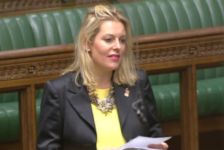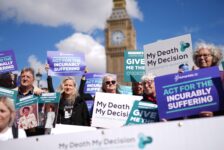Nadhim Zahawi, the Minister for Covid-19 Vaccine Deployment, has said he is confident the government will meet its vaccine targets.
The first of these targets that government ministers have set themselves is to vaccinate the following priority groups identified by the Joint Committee on Vaccination and Immunisation (JCVI) by 15 February:
• Residents in a care home for older adults and their carers
• All those 80 years of age and over and frontline health and social care workers
• All those 75 years of age and over
• All those 70 years of age and over and clinically extremely vulnerable individuals
Under the rollout, the government hopes to offer almost 15 million people in these first four priority groups a vaccine by mid-February. To stay on track, two million jabs a week will need to be carried out by the end of January.
While Boris Johnson and Matt Hancock prefer to talk about the 3.2 million people vaccinated since early December, and less about the sky rocketing daily death numbers, the government is in danger of missing its first vaccine rollout target because it is failing to identify and invite thousands of frontline domiciliary social care workers for the Covid jab.
As a disabled person who privately employs domiciliary social care workers to help me live an independent life at home I am concerned that home carers are not being identified and invited for a priority vaccine, which is important for them, and people like me. If my care worker gets infected with Covid-19 I am at much greater risk of the virus as I have been shielding alone with my carer since March. Letting replacement carers into my home could literally be the death of me. It’s also a false economy to fail to recognise the importance of domiciliary carers as the cost of bringing in agency carers to cover will fall to the taxpayer simply adding to the cost of the pandemic.
The UK COVID-19 Vaccines Delivery Plan published this week makes clear that domiciliary social care workers should be prioritised in the first phase of the vaccine rollout:
“Social care staff work in a range of settings beyond care homes, not least in domiciliary care, which makes up a significant proportion of the sector. The diversity of the sector and its workforce has put a premium on strong local leadership and partnerships between Local Authorities, the NHS, social care providers and their representative bodies. Close joint working between these partners, with local authorities playing a lead role, will be essential to identifying and offering a vaccine to all eligible frontline social care workers. To give just one example, it is vital that we identify and reach directly employed Personal Assistants, who support people within any of the JCVI priority groups (the clinically vulnerable and adults) as part of our efforts to ensure full coverage of the priority 2 cohort.”
This guidance is clear but after several phone calls week, attempting to get my directly employed domiciliary carer the vaccine, there is an information vacuum regarding social care workers in my area of Westminster and the clock is ticking if the government is to hit its target and lives are saved.
My carer’s daughter is 34 and works for a large, private care home provider and she has been offered the vaccine but my carer at 64 and working domiciliary for a private employer has not. This says a lot about the way the vaccine rollout to the domiciliary care sector is being handled.
Disability campaigner and life peer Baroness Jane Campbell, 61, helped lobby for the inclusion of directly employed domiciliary social care workers in the first phase of the vaccine rollout and this week posted a photo of herself on Twitter getting the vaccine along with her five carers in the London borough of Kingston. In a series of tweets she encouraged other disabled people to contact their GP and “not accept brush-offs” despite the official advice being not to contact GPs and wait to be called. However, several Twitter users expressed frustration and replied to her tweets saying they have found it impossible to get themselves and their domiciliary carers vaccinated with calls and emails going unanswered, and outright rejections from their GPs and local vaccine hubs.
From all that I have discovered this past few days I am surprised Baroness Campbell managed to get vaccinated unless in the area where she lives they have already completed vaccinating all 80 + year olds on their books under the guidance laid out by the JCVI. One Twitter user commented that perhaps her title had something to do with it.
I spoke to a manager at Westminster City Council adult social care this week and they had no knowledge of how privately employed domiciliary social care workers are going to be identified and invited for a vaccine in the first four priority groups Boris Johnson has pledged will be jabbed by 15 February. The Vaccine Delivery Plan makes clear local councils like Westminster Council should be taking a lead in identifying and inviting domiciliary social care workers for the jab but this is not yet happening in my area, and many other areas if the response to Baroness Campbell’s tweets on Twitter are anything to go by.
My GP practice in London SW1, (a post code I share with Boris Johnson), told me they have no procedures for identifying and inviting domiciliary social care workers for vaccination. They say they base invites for vaccination on age and clinical risk, not occupation, which suggests to me they are not following the JCVI guidance and the Vaccine Delivery Plan. One of the GPs at the practice went further and said there is no way he can “bump anyone up the list” and are concentrating only on the over 80s at the moment.
The Care Quality Commission told me that domiciliary carers are very much included in the priority groups listed above to receive the vaccine along with NHS and care home workers by mid February, and yet there appears to be little being done to identify and invite these people at the moment.
This unfortunate situation shouldn’t come as a great surprise. Domiciliary care has been neglected throughout the pandemic. One of the few studies into the impact of the pandemic on domiciliary care has found Iin England from 10 April to 8 May, deaths of recipients of domiciliary care were 2.7 times the three year average for that period.
Excess deaths in domiciliary care are said to be nearly as high as care homes and disabled people are disproportionately at risk of Covid because many rely on domiciliary carers for their independence.
I didn’t receive PPE for my carers until mid May, well after the first wave of the pandemic had taken so many lives. No regular testing has been offered to my domiciliary social care worker to date despite working in people’s private homes being a higher risk of transmission as many domiciliary carers work with multiple clients.
Much of the focus has been on the tragedy that has unfolded in care homes but there is a largely ignored army of domiciliary carers, privately employed by individuals, who need the vaccine now to protect themselves, and their extremely vulnerable clients many of whom are shielding.
It appears the government isn’t doing enough to ensure privately employed domiciliary social care workers are identified and invited for a vaccination by 15 February in the same way that carers who work for large care agencies, local councils, and well healed private care home providers are being prioritised. This will undermine the urgent need to get 15 million people vaccinated by the middle of next month.
If the official advice is not to contact your GP to ask when you are going to be vaccinated it is difficult to know how domiciliary social care workers are going to be identified and invited for the jab. The Prime Minister said at the Downing Street press conference today that local councils and public health directors will know who to invite for the vaccine but I am fearful there is a data gap for this diverse sector and it needs addressing fast by local councils, GPs and health trusts if the government’s target is to be met.
Many of us now know someone who has been vaccinated. I have received lots of personal anecdotes from elderly relatives and friends who work in the NHS, care homes and care agencies around the country who have received the vaccine but I’ve heard nothing about my privately employed domiciliary carer. I don’t know how she can be identified and invited as a frontline social care worker by the vaccine roll out system in its current form. That is a real concern as we scramble to protect the most vulnerable from the relentless onslaught of the more transmissible UK variant of Covid-19.
It’s also not clear how the housebound who receive domiciliary care are going to get vaccinated at home in my area. We’ve all seen images of stoical octogenarians queuing up to be vaccinated at vaccine hubs in the snow but for some with particularly severe disabilities this isn’t an option. My local NHS district nurses give me the flu vaccine at home every year, because I can’t go out in cold weather between October and March, but they told me this week they’re not involved in the Covid vaccine rollout and could only suggest a visit to a local vaccine hub. If there is a long queue in cold weather I will not be able to attend. The lack of clear information about how housebound people like me will receive the Covid jab in my area is really concerning.
I am listed as clinically extremely vulnerable to coronavirus by my GP and was told yesterday I will be invited for a vaccination “in the coming weeks”. Let’s hope my carer, and many others like her up and down the country, who are doing a heroic job keeping vulnerable people like me safe, are identified and invited to get their vaccine by 15 February.
If not, another ambitious government target will have been missed, and yet more lives may be lost in this pandemic.






